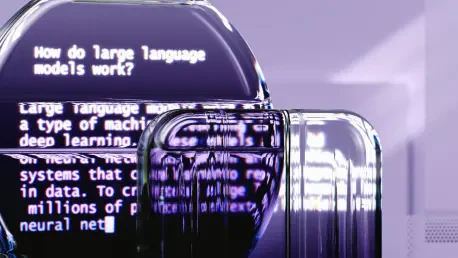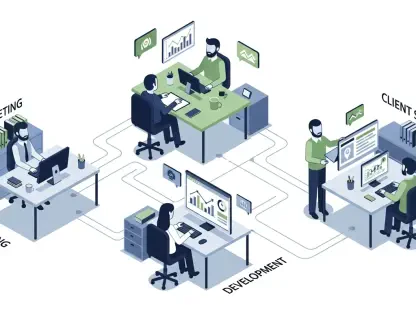Picture a world where artificial intelligence doesn’t just respond to commands but anticipates needs, toggling effortlessly between lightning-fast answers and deep, thoughtful problem-solving. This isn’t a distant dream—it’s the reality introduced by Anthropic with their latest tools, Claude 3.7 Sonnet and Claude Code. Released on November 5, these innovations are capturing the attention of developers, businesses, and tech enthusiasts alike. Their potential to transform workflows and push the boundaries of what AI can achieve is sparking excitement across industries.
Why This AI Breakthrough Matters
In today’s fast-paced digital landscape, the stakes for AI innovation couldn’t be higher. Companies face relentless pressure to automate processes, while developers struggle with shrinking timelines and increasingly complex challenges. The arrival of Claude 3.7 Sonnet and its companion tool, Claude Code, offers a timely solution, promising to bridge the gap between speed and sophistication. These tools aren’t just incremental updates; they represent a paradigm shift in how AI can adapt to human needs, addressing both productivity hurdles and ethical concerns head-on.
The significance of this release lies in its ability to empower a wide range of users. From solo coders to enterprise teams, the tools aim to democratize access to cutting-edge technology. Their integration with major platforms and focus on responsible development further underscore their potential to reshape not just individual projects, but entire industries over the coming years.
Dual-Mode Magic: Inside Claude 3.7 Sonnet
At the heart of this release is Claude 3.7 Sonnet, a model that redefines versatility with its hybrid reasoning capabilities. It can switch between rapid responses for straightforward tasks and extended, reflective thinking for intricate problems, making it a standout in fields like mathematics, physics, and software development. For example, a researcher tackling a complex dataset might use the quick mode for initial queries and shift to extended mode for in-depth analysis, optimizing both time and accuracy.
This flexibility is backed by impressive stats: compared to its predecessor, Claude 3.7 Sonnet reduces unnecessary refusals by 45%, ensuring smoother interactions without compromising safety. Anthropic’s detailed system card reveals rigorous testing against risks like prompt injection attacks, highlighting a commitment to reliability. Priced at $3 per million input tokens and $15 per million output tokens, with extended thinking as a premium feature, it balances accessibility with advanced functionality across Free, Pro, Team, and Enterprise plans.
Claude Code: A Developer’s New Best Friend
Complementing the core model, Claude Code emerges as a game-changer for software engineering. Launched in a limited research preview as a command-line tool, it automates substantial tasks such as code editing, testing, and deployment directly from a developer’s terminal. Early adopters report staggering efficiency gains, with processes that once took over 45 minutes now completed in mere moments, particularly in test-driven development and debugging workflows.
The tool’s design positions it as a virtual collaborator, handling repetitive chores so developers can focus on creative problem-solving. Imagine a startup team refactoring an entire codebase—Claude Code streamlines the grunt work, shaving hours off tight deadlines. This kind of impact hints at a future where coding bottlenecks become a relic of the past, freeing up mental space for innovation.
Real Voices, Real Impact
Feedback from users and experts paints a vivid picture of these tools’ transformative power. A software engineer testing Claude Code shared, “It’s like working with a tireless teammate—my productivity has soared beyond what I thought possible.” Such testimonials reflect a broader sentiment of trust in Anthropic’s approach, which prioritizes usability alongside innovation.
Beyond individual experiences, Anthropic’s transparency bolsters confidence. Extensive evaluations ensure that safety remains paramount, with safeguards meticulously documented. This balance of cutting-edge features and ethical responsibility resonates with a tech community increasingly wary of unchecked AI deployment, suggesting that these tools could set a new standard for responsible development.
Seamless Access and Integration
Accessibility forms a cornerstone of this release, ensuring that a diverse audience can harness these advancements. Claude 3.7 Sonnet is available across all plan tiers and integrates smoothly with platforms like Amazon Bedrock, Google Cloud’s Vertex AI, and GitHub, facilitating collaboration and scalability. Whether a freelancer connecting a repository or an enterprise deploying large-scale applications, the tools adapt to varying needs with ease.
This wide reach extends their practical utility in real-world scenarios. Developers can embed the AI into existing workflows without steep learning curves, while businesses can leverage cloud integrations for robust solutions. Anthropic’s strategy here appears clear: build tools that not only perform exceptionally but also fit seamlessly into the ecosystems users already rely on.
Looking Ahead After a Groundbreaking Launch
Reflecting on the launch of Claude 3.7 Sonnet and Claude Code, it was evident that Anthropic had delivered something extraordinary. The blend of speed and depth in reasoning, coupled with automation in coding, marked a pivotal moment for AI’s role in daily workflows. Industries from tech to academia stood to benefit from tools that didn’t just keep pace but set a new rhythm for progress.
As the dust settled, the path forward became a topic of keen interest. Exploring how to tailor these tools for specific challenges—whether through custom prompts or deeper platform integrations—offered a practical next step for users. Keeping an eye on how Anthropic would evolve these innovations based on real-world use promised to reveal even greater possibilities, ensuring that this breakthrough was just the beginning of a larger transformation.









